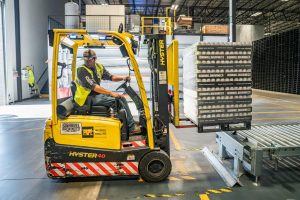In today’s rapidly evolving warehousing landscape, technological advancements are reshaping operations. As automation, data analytics, and other innovations become more integrated into supply chains, businesses are seeking more adaptive ways to handle their material handling needs. Forklift rentals are increasingly being seen as a key player in this transformation, offering businesses the flexibility and access to the high-performance equipment that’s necessary to stay competitive in a high-tech environment.
Scalability in Response to Market Changes
Warehousing needs fluctuate depending on market conditions, seasonal demands, and shifts in consumer behavior. Rather than committing to a fixed fleet of forklifts, businesses are opting for forklift rentals to scale their operations as needed. Principle Fork Lift rental, for example, offers flexible leasing options that allow companies to quickly increase or decrease their fleet without the complexities of purchasing and selling equipment. This scalability is invaluable for businesses facing unpredictable demand patterns, such as those in the retail or logistics sectors. Renting forklifts allows warehouses to quickly adjust to peaks in demand or changes in order volume, making it easier to stay responsive to ever-changing market conditions.
Improved Operational Efficiency through Flexible Leasing
As technology continues to push for faster, more efficient warehouse operations, forklift rentals enable companies to upgrade to more specialized machinery without the burden of long-term ownership. For instance, specific forklifts designed for certain environments, like narrow-aisle or high-lift models, can be rented for particular tasks, allowing businesses to optimize their operations. Additionally, short-term rental agreements provide the chance to assess how new equipment performs in real-world conditions, offering valuable insights before making long-term decisions. This approach ensures that businesses always have the right tools at the right time to maximize productivity.
Environmental Benefits of Renting Forklifts
As sustainability becomes a growing priority, many warehouses are looking for ways to reduce their environmental impact. Renting forklifts, especially those with electric powertrains, can significantly reduce carbon footprints. Rental companies are increasingly offering electric or hybrid forklifts as part of their fleet, helping businesses to meet green standards without having to invest in expensive infrastructure. In turn, businesses can promote sustainability and meet customer expectations for eco-friendly operations while still maintaining high efficiency.
Facilitating Technological Integration
With the rapid pace of technological development, it’s often challenging for warehouses to keep up with the latest innovations. Renting forklifts can ease this challenge by providing access to the newest models with integrated technologies like IoT sensors, real-time tracking, and machine learning. These smart forklifts can provide data-driven insights into operational performance, helping warehouse managers to optimize inventory management, track equipment usage, and forecast maintenance needs. As the warehouse sector becomes more connected, forklift rentals offer a bridge to these technologies, ensuring that businesses can stay up to date without large-scale investments.
Maintenance and Support Services
One often-overlooked benefit of forklift rentals is the access to comprehensive maintenance and support services. Rental companies take on the responsibility for regular maintenance, servicing, and repairs, ensuring that forklifts are always in good working condition. This reduces downtime and ensures that businesses have access to reliable equipment. Moreover, rental companies often provide around-the-clock support, so if any issues arise, businesses can quickly resolve them without the stress of managing in-house repair teams or dealing with warranty concerns.
Streamlining Supply Chain Integration
As supply chains become more interconnected with various forms of automation and data sharing, forklift rentals help to streamline this process by allowing seamless integration of advanced material handling solutions. Renting forklifts that are compatible with automated systems or warehouse management software (WMS) can help to optimize supply chain workflows. Whether it’s integrating forklifts with robots in a mixed-use space or ensuring compatibility with the latest software for inventory management, rentals ensure that businesses can upgrade their systems without having to overhaul entire fleets.
Conclusion
Forklift rentals are playing a pivotal role in the technological transformation of warehousing by providing businesses with the flexibility to adapt to new technological trends and evolving market demands. By offering scalability, access to the latest innovations, and environmental benefits, forklift rentals allow warehouses to maintain high efficiency and competitiveness in a fast-paced industry. As warehouses continue to embrace automation, smart technologies, and sustainability efforts, forklift rentals will remain a key tool in driving this progress.








